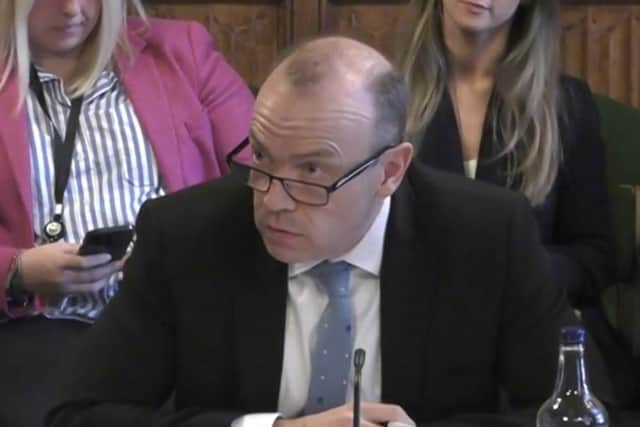Chris Heaton-Harris grilled on MLAs' Windsor Framework ‘veto’
and live on Freeview channel 276
The NI Secretary has come under increasing pressure to spell out the full impact of the Windsor Framework – agreed between Downing Street and the European Union – and whether MLAs will have the power to restrict the imposition of EU legislation against the wishes of elected representatives in the region.
MPs will vote on Wednesday on the so-called Stormont brake element of the new deal aimed at resolving many of the difficulties arising from the post-Brexit trading arrangements.
Advertisement
Hide AdAdvertisement
Hide AdEarlier this month, Mr Heaton-Harris was pressed on whether the Stormont brake compelled the government to veto an EU law at the behest of MLAs.


He replied: "So the criteria really have to be fulfilled at the Assembly level, and yeah, we make an assessment, but in the piece of secondary legislation that we'll be bringing forward, the government will be bound, yeah."
However, that view has been robustly challenged by legal experts who have studied the text of the government legislation.
When he appeared before Parliament’s European Scrutiny Committee on Tuesday, Mr Heaton-Harris was challenged to clarify the true nature of the Stormont brake.
Advertisement
Hide AdAdvertisement
Hide AdBarrister and DUP MP Gavin Robinson, asked the NI Secretary if it was accurate to describe any veto as being in the hands of the UK Government, and not the NI Assembly.
"Do you accept that that is not the case?" Mr Robinson said.
Mr Heaton-Harris offered further clarification but, ultimately appeared to concede that the concerns of MLAs could "directly lead to a [government] veto,” rather than Stormont having the power to act decisively.
"The actions of the members of the legislative assembly, directly lead to the government's… to the veto."
Seeking a definitive response, Mr Robinson asked: "Directly lead to, but they do not hold the veto?"
Mr Heaton-Harris replied: "Can directly lead to the veto"